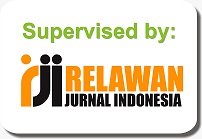The Synthesis of Self-Efficacy of Academic Resilience Capacity (SEARC) as the Implication of Self-Efficacy Contribution to Student Academic
DOI:
https://doi.org/10.32939/tarbawi.v18i1.1522Keywords:
Academic Resilience Capacity, Self-Efficacy Ability, Synthesis StudyAbstract
Many students in the educational process need more resilience. This research aims to determine the academic resilience of students' self-efficacy aspects, such as mastery experience, vicarious experience, social persuasion, and emotional state. It also aims to synthesize a framework for modifying students’ academic behavior, namely Self-Efficacy of Academic Resilience Capacity (SEARC). A quantitative approach with regression and literature analyses was used to develop a synthesis framework based on the field findings. The random sampling method was used to collect data on students' self-efficacy. The instrument used in this research was the Academic Self-Efficacy Scale (ASES) developed by Alfaiz with a 0.898 reliability. The collected data were analyzed descriptively and regression analysis was used to test the hypothesis. The results showed that mastery experience, vicarious experience, and emotional state significantly increase students’ resilience but social persuasion is insignificant when viewed partially. It implies that self-efficacy ability contributes to academic resilience.
Downloads
References
Alfaiz, A., & Yandri, H. (2015). Self concept and self efficacy as a ground points in social activities (an analysis of psychology perspective: a social cognitive theory). Jurnal Pelangi, 7(2). https://doi.org/10.22202/jp.2015.v7i2.203
Alfaiz, A., Hidayah, N., Hambali, I. M., & Radjah, C. (2019a). Human Agency as a Self Cognition of Human Autonomous Learning: A Synthesized Practical of Agentic Approach. Journal of Social Studies Education Research, 10(4), 370-391. Google Scholar
Alfaiz, A., Hidayat, H., Yandri, H., Sari, A., Sendayu, F., Suarja, S., & Arjoni, A. (2021). Identification of Perceived Self-Efficacy to Predict Student’s Awareness in Career Readiness. Islamic Guidance and Counseling Journal, 4(1). https://doi.org/10.25217/igcj.v4i1.933
Alfaiz, A., Rafiola, R. H., Hariko, R., & Zulfikar, Z. (2017b). Condition and Shaping of Student Personality in Educational Process Through Transpersonal Psychology Perspective. In 3rd International Conference on Education and Training (ICET 2017) (pp. 1-4). Atlantis Press. https://dx.doi.org/10.2991/icet-17.2017.1
Alfaiz, A., Yandri, H., Yuzarion, Y., Lestari, L. P. S., & Heriyani, E. (2019b). Persepsi individu untuk mencapai prestasi pribadi dalam aktivitas karir: riset pendahuluan. Psychocentrum Review, 1(2), 85-95. https://doi.org/10.26539/pcr.1276
Alfaiz, A., Zulfikar, Z., & Yulia, D. (2017a). Efikasi Diri sebagai Faktor Prediksi Kesiapan Mahasiswa dalam Mengerjakan Tugas Kuliah. Ilmu Pendidikan: Jurnal Kajian Teori Islamic Guidance and Counseling Journal Vol. 4, No. 1, pp. 124-132, January 2021 dan Praktik Kependidikan, 2(2), 119-124. http://dx.doi.org/10.17977/um027v2i22017p119
Alfaiz, R. H. R., Triyono, M. D., & Septya Suarja, N. (2020). Student Personal Agency Weakness in Autonomous Learning: Preliminary Research. International Journal of Innovation, Creativity and Change, 13(7). 973-989. Google Scholar
Allred, S. L., Harrison, L. D., & O'Connell, D. J. (2013). Self-efficacy: An important aspect of prison-based learning. The Prison Journal, 93(2), 211–233. http://doi.org/10.1177/0032885512472964
Bandura, A. (1977). Social Learning Theory. Englewood Cliffs, New Jersey: Prentice-Hall
Bandura, A. (1978). The self system in reciprocal determinism. American psychologist, 33(4), 344. http://doi.org/10.1037/0003-066x.33.4.344
Bandura, A. (1986). Social Foundation of Thought and Action: Social Cognitive Theory. Englewood Cliffs, New Jersey: Prentice-Hall.
Bandura, A. (1995). Self-efficacy in changing societies. Cambridge university press. Google Scholar Bandura, A. (1986). Social foundations of thought and action. Englewood Cliffs, NJ, 1986(23- 28). Google Scholar
Bandura, A. (1997). “Self-Efficacy The Exercise of Control”. New York: Freeman and Company
Bandura, A. (1999). Social cognitive theory: An agentic perspective. Asian journal of social psychology, 2(1), 21–41. https://doi.org/10.1111/1467-839X.00024
Bandura, A. (2000). Exercise of human agency through collective efficacy. Current directions in psychological science, 9(3), 75–78. https://doi.org/10.1111%2F1467-8721.00064
Bandura, A. (2001). Social cognitive theory: An agentic perspective. Annual review of psychology, 52(1), 1–26. https://doi.org/10.1146/annurev.psych.52.1.1
Bandura, A. (2006). Toward a psychology of human agency. Perspectives on psychological science, 1(2), 164–180. http://doi.org/10.1177/1745691617699280
Bandura, A. (2008). Toward an agentic theory of the self. Advances in self research, 3, 15–49. Google Scholar
Bandura, A., & McClelland, D. C. (1977). Social learning theory (Vol. 1). Prentice-Hall: Englewood Cliffs. Google Scholar
Boeree, G. (2004). Personality Theories, terj. Inyiak Ridwan Muzir. Yogya: Primasophie. Google Scholar
Cauce, A. M., & Gordon, E. W. (2012). Toward the measurement of human agency and the disposition to express it. Gordon commission on the future of educational assessment, Princeton, Educational Testing Service. Google Scholar
Gao, Z., Lochbaum, M., & Podlog, L. (2011). Self-efficacy as a mediator of children’s achievement motivation and in-class physical activity. Perceptual and Motor Skills, 113(3), 969-981. http://doi.org/10.2466/06.11.25.PMS.113.6.969-981
Hergenhahn, B. R., & Olson, M. H. (2008). Theories of Learning (teori belajar). Tri Wibowo BS (Alih 20ahasa). Jakarta: Kencana Prenada Media Group. Google Scholar
Kadafi, A., Alfaiz, A., Ramli, M., Asri, D., & Finayanti, J. (2021). The Impact of Islamic Counseling Intervention towards Students’ Mindfulness and Anxiety during the COVID-19 Pandemic. Islamic Guidance and Counseling Journal, 4(1). https://doi.org/10.25217/igcj.v4i1.1018
Krumboltz, J. D., Mitchell, A. M., & Gelatt, H. B. (2011). Krumboltz’s learning theory of career counseling (LTCC) & happenstance. Google Scholar
Montenegro, A. (2019). Why are students’ self-initiated contributions important (?) A study on agentic engagement. International Journal of Sociology of Education, 8(3), 291–315. http://dx.doi.org/10.17583/rise.2019.4540
Pajares, F. (2002). Self-efficacy beliefs in academic contexts: An outline. Google Scholar
Pajares, F. (2006). Self-efficacy during childhood and adolescence. Self-efficacy beliefs of adolescents, 5, 339–367. Google Scholar
Pajares, F., & Miller, M. D. (1994). Role of self-efficacy and self-concept beliefs in mathematical problem solving: A path analysis. Journal of educational psychology, 86(2), 193. https://psycnet.apa.org/doi/10.1037/0022-0663.86.2.193
Pajares, F., & Usher, E. L. (2008). Self-efficacy, motivation, and achievement in school from the perspective of reciprocal determinism. Advances in motivation and achievement, 15, 391-423. Google Scholar
Reeve, J., & Tseng, C. M. (2011). Agency as a fourth aspect of students' engagement during learning activities. Contemporary Educational Psychology, 36(4), 257–267. http://doi.org/10.1016/j.cedpsych.2011.05.002
Umar, H. (2008). Metode Penelitian untuk skripsi dan tesis Bisnis edisi Kedua. Jakarta: PT RajaGrafindo Persada. Google Scholar
Zimmerman, B. J., & Schunk, D. H. (Eds.). (2001). Self-regulated learning and academic achievement: Theoretical perspectives. Routledge. Google Scholar
Downloads
Published
Issue
Section
License
Copyright (c) 2022 Azhariah Fatia, Alfaiz, Yuzarion, Andre Julius, Ryan Hidayat Rafiola, Fendahapsari Singgih Sendayu, Anabelie V. Valdez, Dosi Juliawati

This work is licensed under a Creative Commons Attribution-ShareAlike 4.0 International License.









